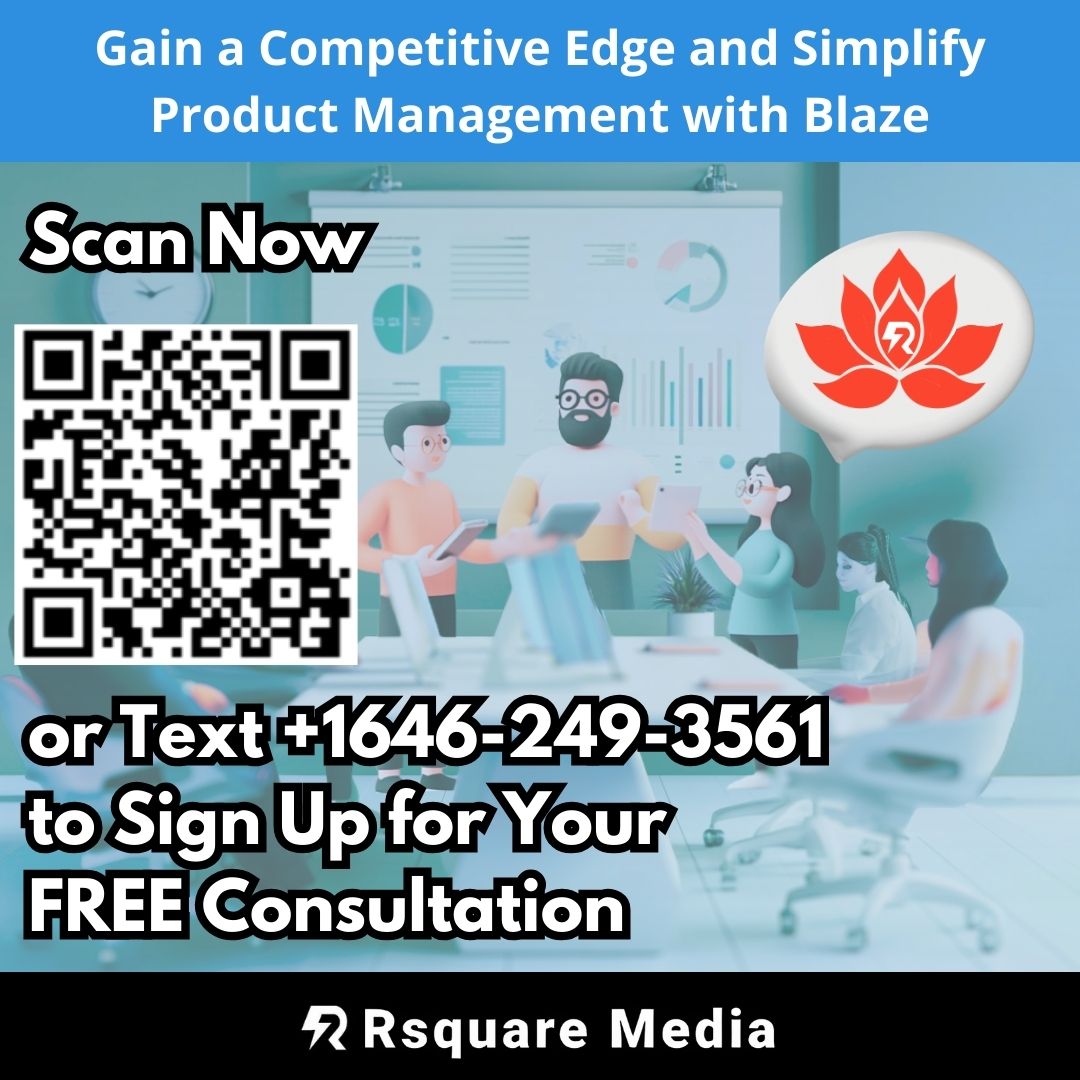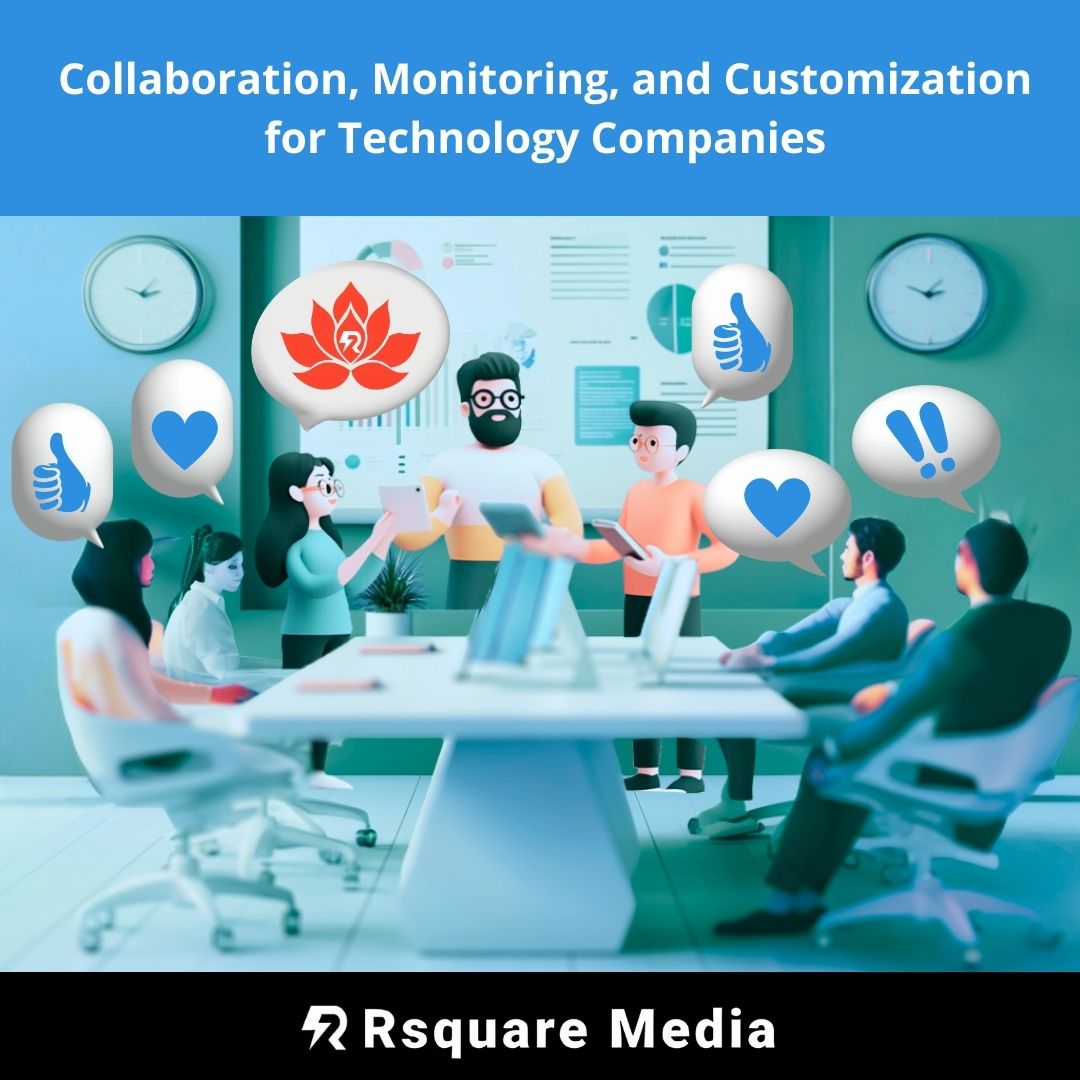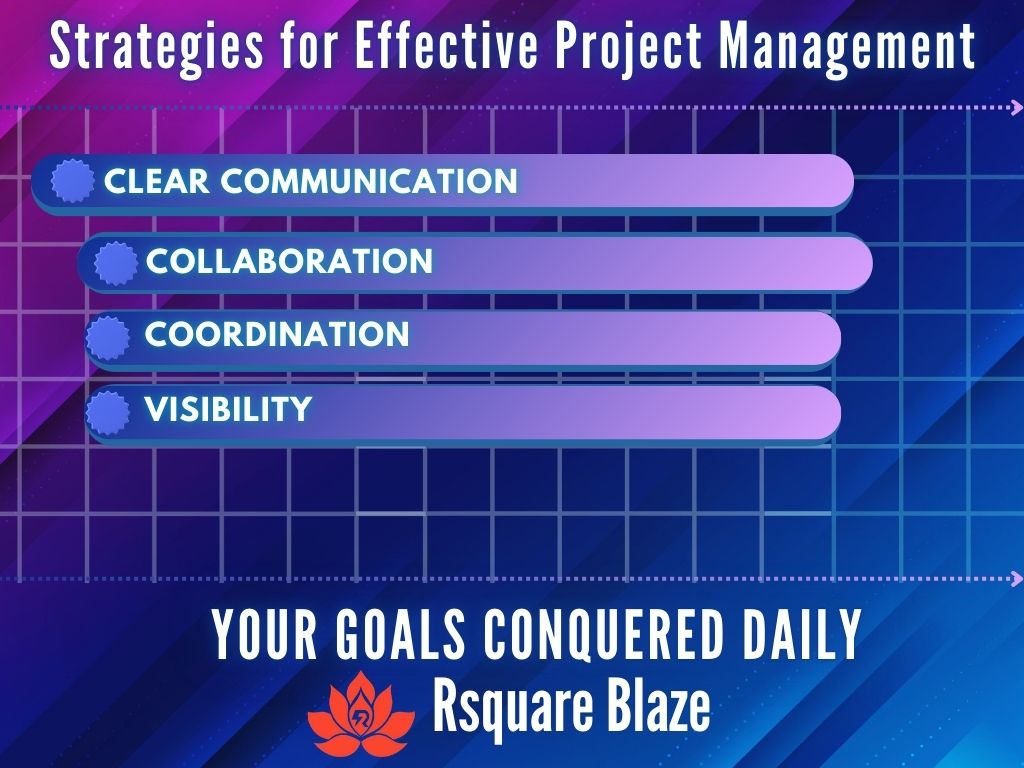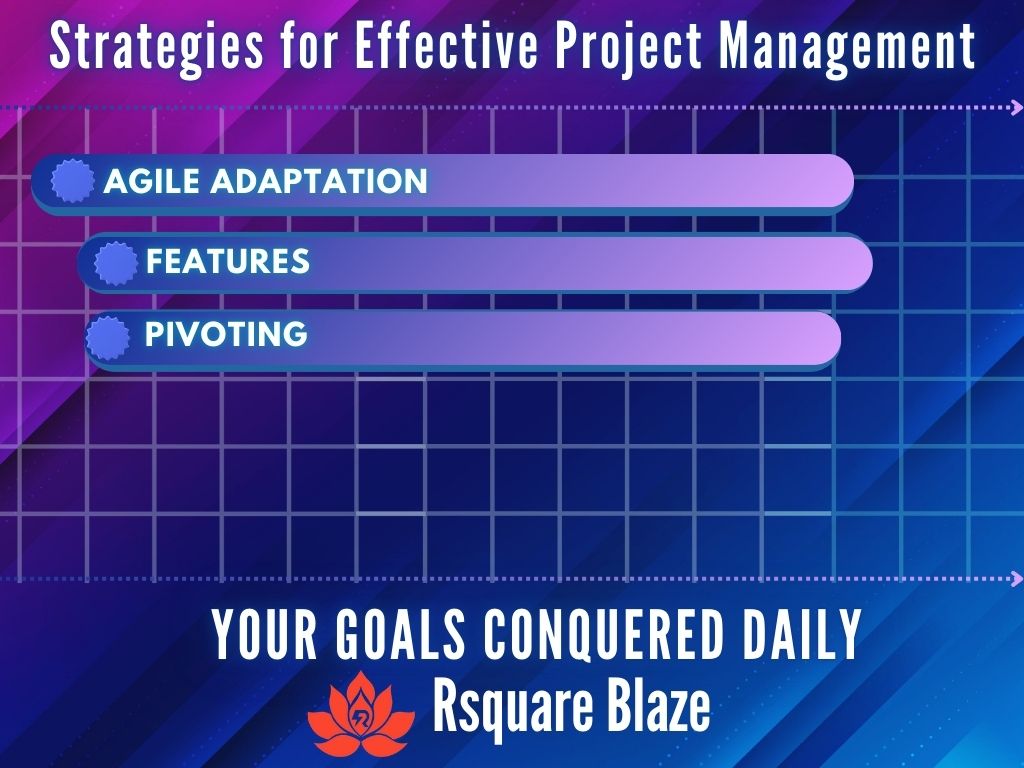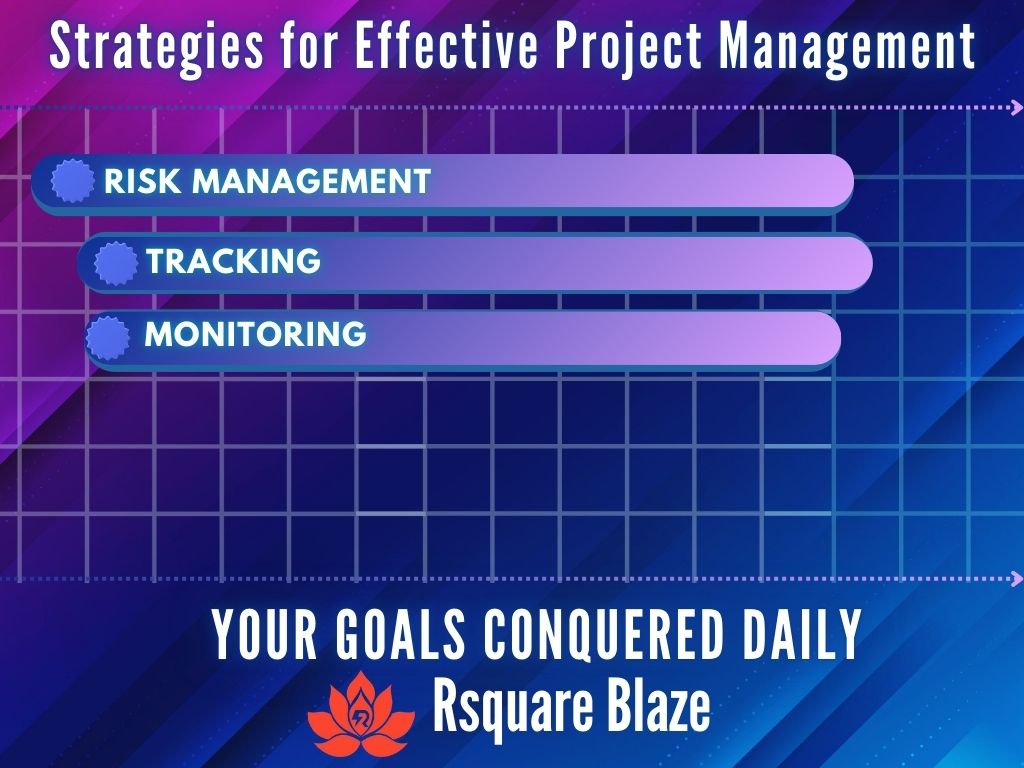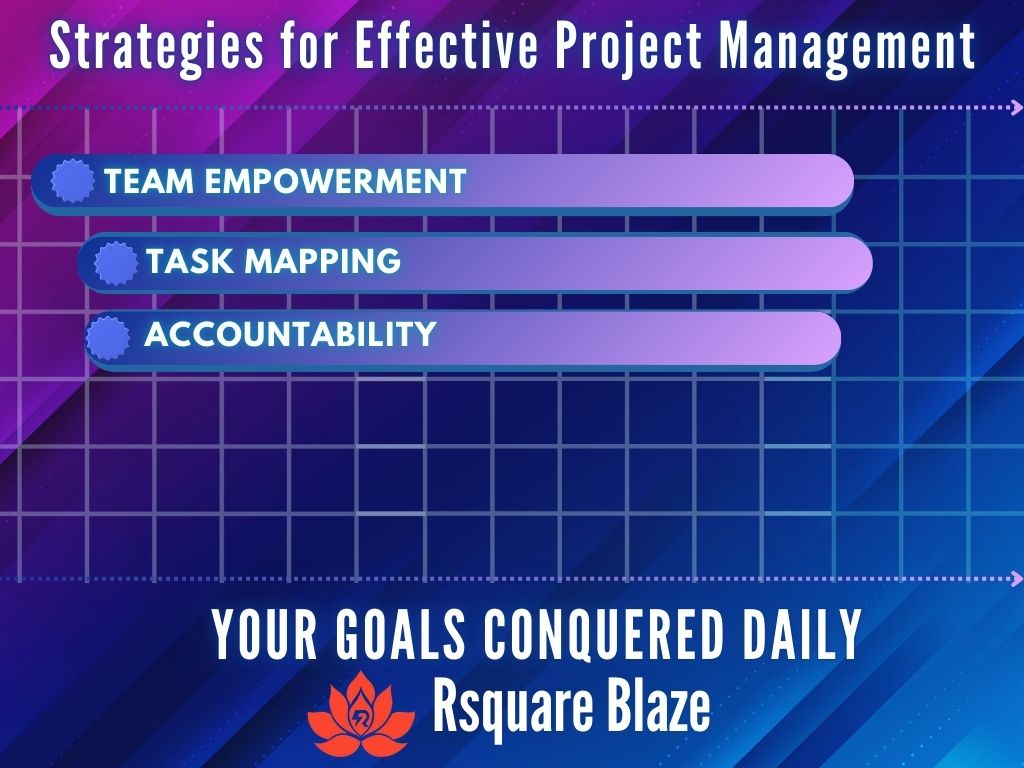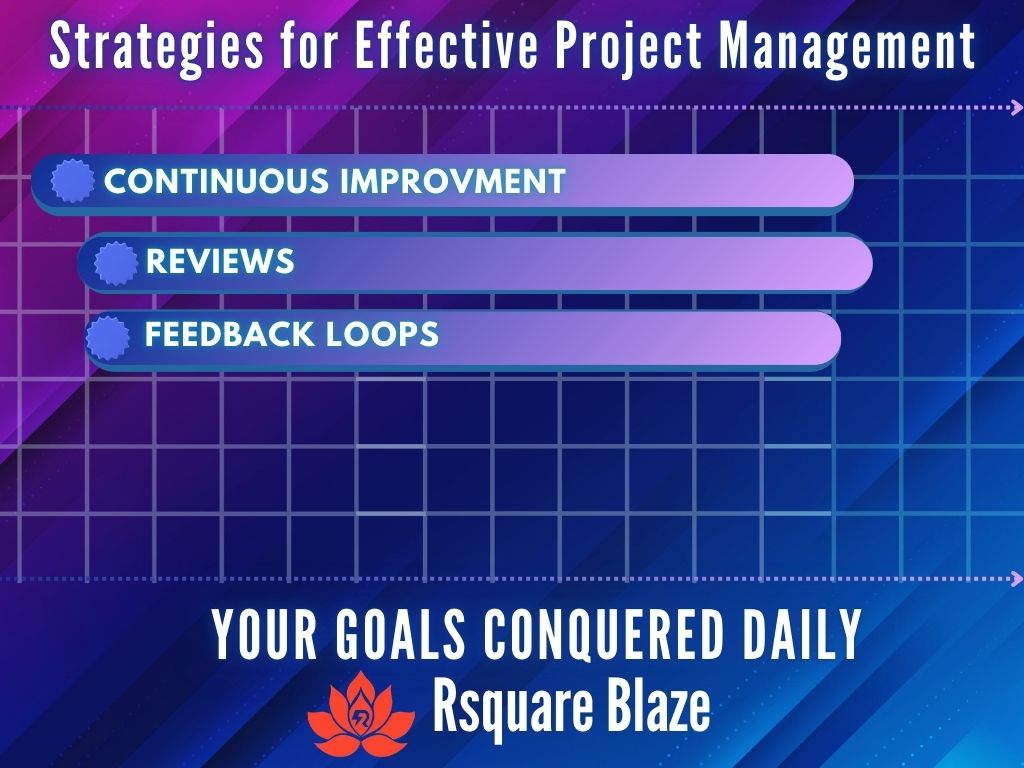Introduction
Effective project management is the backbone of success for businesses across all sectors. Whether you’re leading a small team or orchestrating large-scale projects, the ability to plan, organize, and execute tasks while managing resources and deadlines is crucial. This ensures projects are completed on time and within budget.
Over the years, project management tools have evolved significantly. They have transitioned from basic task-tracking software to robust platforms designed to:
- Streamline workflows
- Improve collaboration
- Enhance productivity
These tools are now a necessity, enabling teams to manage tasks, monitor progress, and adapt to challenges in real time. However, not all tools are created equal. Many fall short when it comes to handling the intricate needs of specialized industries.
That’s where Blastoff® sets itself apart.Blastoff® combines advanced task management features with industry-specific capabilities.
Blastoff® is the latest addition to Rsquare Media’s suite of outcome-driven solutions, joining innovative offerings like Bazooka, Halo, and Forcefield. These solutions are designed to support clients with product launches and strategic planning. Led by CEO Rajiv Jadhav, who brings over 20 years of experience in the field, Rsquare Media has a strong track record of success. Rajiv is best known for orchestrating the record-breaking Lipton Green Tea launch for Unilever, which earned a place in the Guinness Book of Records and saw the product sell out nationwide in India for two consecutive months.
KEY BENEFITS OF BLASTOFF INLCLUDE:
- Goal Mapping: From high-level objectives to detailed tasks, every aspect is tracked with precision.
- Enhanced Control and Visibility: Keep stakeholders informed and engaged throughout the project lifecycle.
- Adaptability: Quickly adjust to changes and challenges that arise in complex environments.
In this guide, we’ll explore how Blastoff® and other leading project management tools can help optimize your project workflows and deliver results that matter.
Understanding Project Management
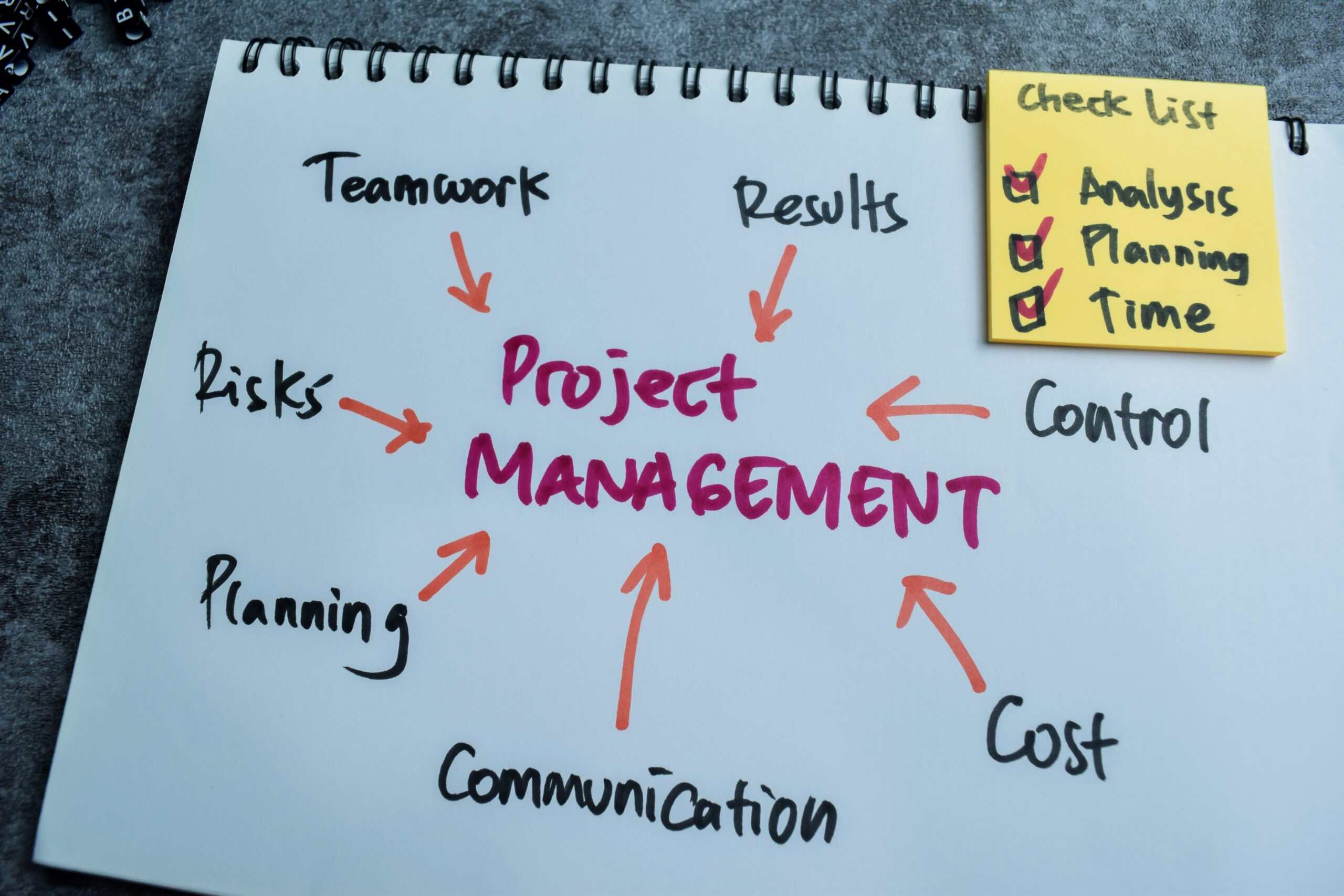
Project management is the structured process of planning, organizing, and overseeing tasks and resources to achieve specific goals within a set timeline, scope, and budget. Its relevance extends across industries, providing a framework for:
- Delivering Projects Efficiently: Ensures that objectives are met on time.
- Minimizing Risks: Identifies and mitigates potential challenges.
- Ensuring Quality Outcomes: Maintains high standards throughout the project lifecycle.
Whether launching a new product or implementing a marketing campaign, project management enables teams to:
- Stay aligned with project goals
- Meet deadlines consistently
- Control costs effectively
- Adapt to unforeseen challenges
At its core, project management follows five essential phases:
- Initiation: Define the project’s goals, scope, and stakeholders.
- Planning: Create a detailed roadmap outlining tasks, timelines, and resources.
- Execution: Implement the plan, coordinate teams, and manage resources.
- Monitoring and Control: Track progress, address risks, and make necessary adjustments to keep the project on track.
- Closure: Evaluate the project’s success, document lessons learned, and hand over deliverables.
While traditional project management frameworks provide a solid foundation, tools like Blastoff® elevate these processes to the next level. Blastoff® enhances each phase by offering tailored features that align with industry-specific needs.
Key advantages of Blastoff® include:
- Advanced Goal Mapping: Clearly define and track objectives.
- Real-Time Collaboration: Facilitate communication among multi-stakeholder teams.
By supporting complex, multi-stakeholder projects with precision, Blastoff® proves to be an invaluable asset for teams needing more than just basic task management.
To get a head start on your product launch, program management and strategic planning needs schedule a free complimentary discovery call with Rajiv Jadhav, CEO of Rsquare Media. Click here!
Core Elements of Project Management
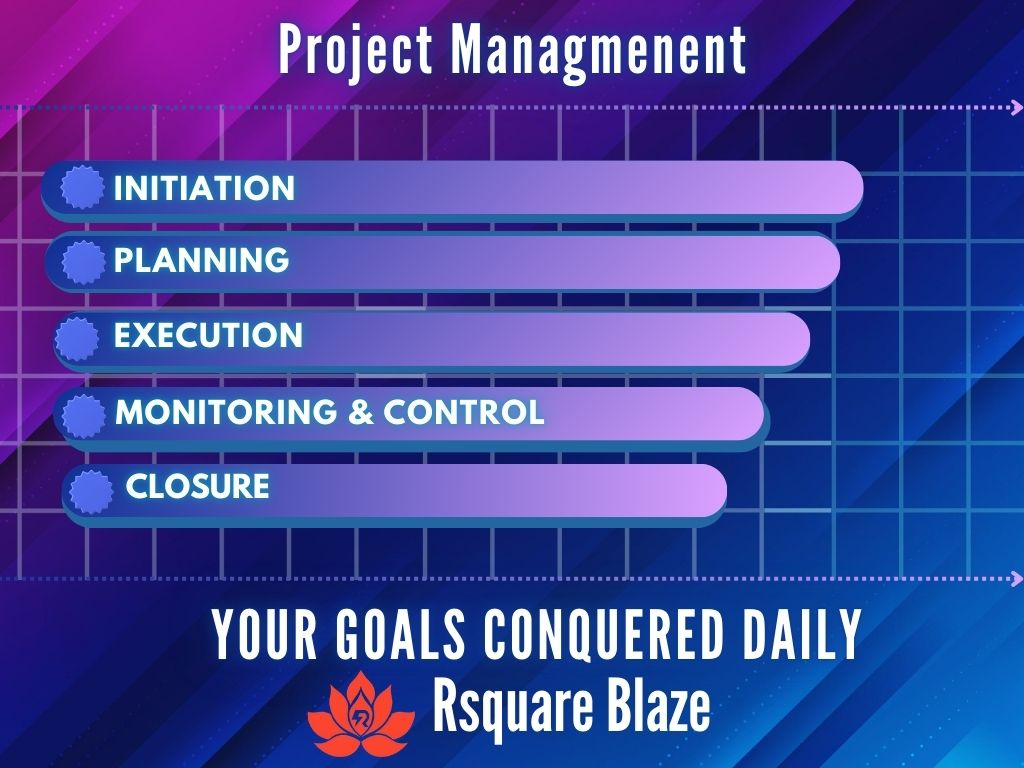
The success of any project hinges on a solid understanding of its core phases: initiation, planning, execution, monitoring, and closure. Each phase plays a crucial role in driving a project from conception to completion, ensuring that teams remain organized, efficient, and aligned with the project’s objectives.
- Initiation
- In the initiation phase, project goals, scope, and key stakeholders are defined. This is where teams identify:
- What needs to be achieved: Establishing clear objectives.
- Resources required: Understanding the manpower, tools, and budgets needed.
- Blastoff® enhances this phase by allowing users to map high-level goals directly to specific tasks. This ensures clarity from the outset, which is especially important in highly regulated industries where precision is crucial.
- Planning
- The planning phase involves creating detailed timelines, task assignments, and budget allocations. Key features of Blastoff® include:
- Advanced Planning Tools: Enable real-time collaboration and resource management.
- Industry-Specific Templates: Streamline workflow setups, reducing the margin for error and saving valuable time.
- Execution
- During the execution phase, teams carry out the project plan, coordinating tasks and resources to meet objectives. Blastoff® stands out with its:
- Seamless Integration of Communication Tools: Facilitates constant connectivity among team members, allowing for quick adjustments when needed.
- Monitoring and Control
- In the monitoring and control phase, project progress is tracked, and adjustments are made to keep the project on course. Blastoff® provides:
- Robust Tracking and Reporting Features: Enable proactive risk management and ensure compliance with industry regulations.
- Closure
- Finally, in the closure phase, teams evaluate outcomes and document lessons learned. Blastoff® facilitates this process with:
- Comprehensive Data Analysis Tools: Ensure a smooth transition and provide actionable insights for future projects.
By understanding and effectively managing each of these core phases, teams can significantly enhance their project outcomes and operational efficiency.
Project Management Methodologies
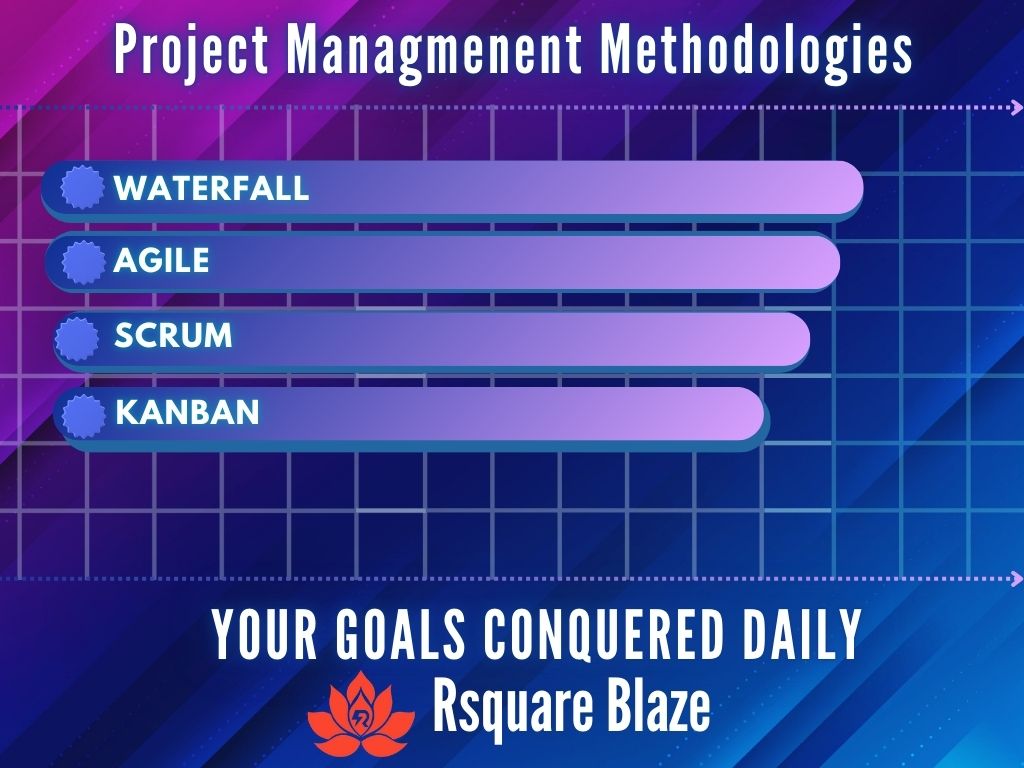
Project management has evolved into a rich tapestry of methodologies, each offering unique approaches to organizing and executing projects. The most prominent methodologies include Waterfall, Agile, Scrum, and Kanban. Each serves as a guide through the complexities of project management, helping teams stay on track with varying degrees of structure and flexibility.
- Waterfall Methodology
- The Waterfall methodology is a traditional, linear approach where each phase follows sequentially, much like a line of falling dominoes. Key characteristics include:
- Clarity and Order: Ideal for projects with well-defined requirements.
- Rigidity: Once a phase is completed, adjustments can be costly and time-consuming.
- Agile Methodology
- The Agile methodology encourages teams to embrace adaptability and continuous improvement. Its features include:
- Iterative Cycles: Projects progress through iterations, allowing for frequent reassessment.
- Collaboration and Flexibility: Promotes teamwork and responsiveness to change.
- Scrum Methodology
- Scrum is a branch of Agile that emphasizes short, timed iterations called sprints. Key aspects include:
- Daily Meetings: Teams discuss progress and adjustments.
- Frequent Client Feedback: Allows for rapid course corrections.
- Kanban Methodology
- The Kanban methodology emphasizes real-time task prioritization and visual workflows. Key features include:
- Task Visualization: Teams can see tasks on a board, ensuring smooth transitions between phases.
- Fluidity: Offers a flexible approach to task management.
Essential Project Management Tools
In today’s dynamic work environments, having the right project management tools can mean the difference between chaos and clarity. Several popular tools, such as Blastoff®, Asana, Trello, and Monday.com, offer robust features for task tracking, team collaboration, and workflow visualization. Each tool caters to different needs and industries.
Blastoff®
Blastoff® is the latest addition to Rsquare Media’s suite of outcome-driven solutions, joining innovative offerings like Bazooka, Halo, and Forcefield. These solutions are designed to support clients with product launches and strategic planning. Led by CEO Rajiv Jadhav, who brings over 20 years of experience in the field, Rsquare Media has a strong track record of success. Rajiv is best known for orchestrating the record-breaking Lipton Green Tea launch for Unilever, which earned a place in the Guinness Book of Records and saw the product sell out nationwide in India for two consecutive months.
This is where Blastoff® emerges as a superior solution for teams working on complex, highly regulated projects. Key differentiators include:
- Industry-Specific Workflows: Integrates compliance features directly into its platform.
- Holistic Project Management: Provides a comprehensive approach to managing complex projects.
Blastoff GOSTT Framework (Goal, Objective, Strategy, Tactic, Task) offers a unique structure that allows teams to map every task to larger organizational goals. This strategic alignment ensures that all activities contribute meaningfully to overarching objectives, a critical feature for industries where precision is paramount.
Get Started with Blastoff®
If you’re ready to experience the benefits of strategic task management for yourself, consider these options:
To get a head start on your product launch, program management and strategic planning needs schedule a free complimentary discovery call with Rajiv Jadhav, CEO of Rsquare Media. Click here!
In essence, while tools like Asana, Trello, and Monday.com are effective for general project management, Blastoff® stands out as the go-to choice for teams requiring advanced tools tailored to specific industry needs and complex project cycles.
Key Features of Blastoff®
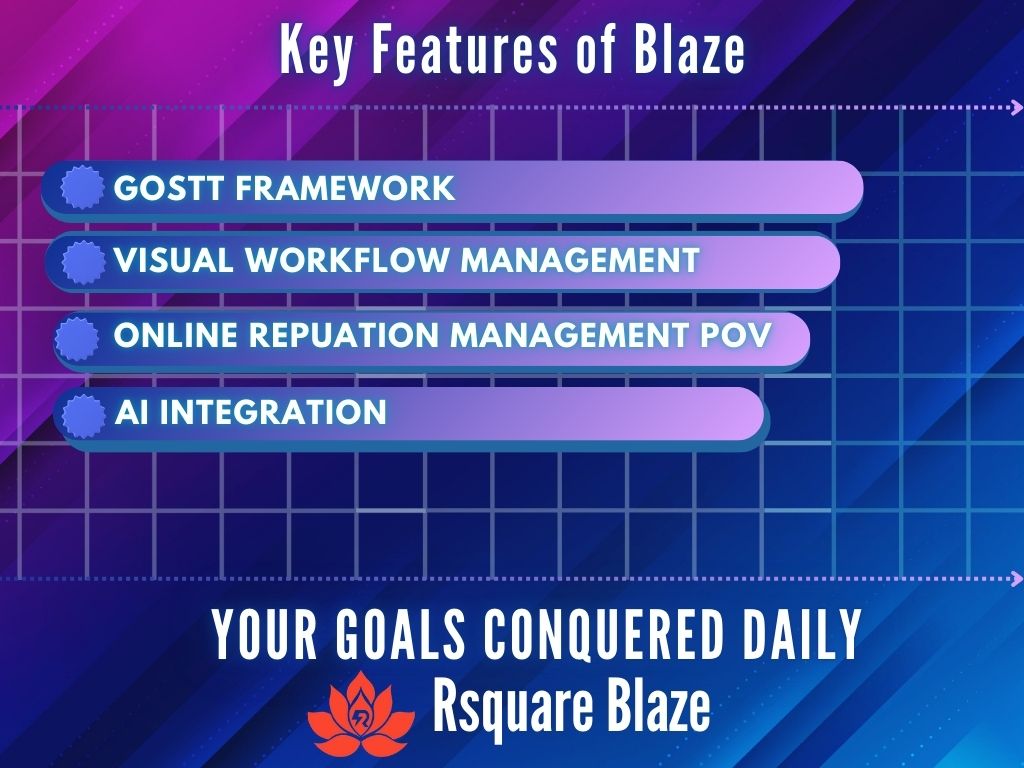
Blastoff® distinguishes itself from conventional project management solutions with a unique set of features tailored for managing highly regulated and complex projects. Central to its effectiveness is the GOSTT Framework (Goal, Objective, Strategy, Tactic, Task), a comprehensive approach designed to break down large organizational goals into actionable tasks.
- GOSTT Framework
- The GOST Model is a strategic framework designed for effective goal-setting, aimed at driving the success of a strategy. In essence, GOST outlines what you want to accomplish and the methods you’ll use to reach those goals.
- Developed by Rich Horwath, founder of the Strategic Thinking Institute in 2009, the GOST framework breaks down into four key elements: Goals, Objectives, Strategies, and Tactics. These components are organized in a quadrant chart, highlighting the different levels of detail involved in each and the specific criteria they must meet to support a well-defined strategy.
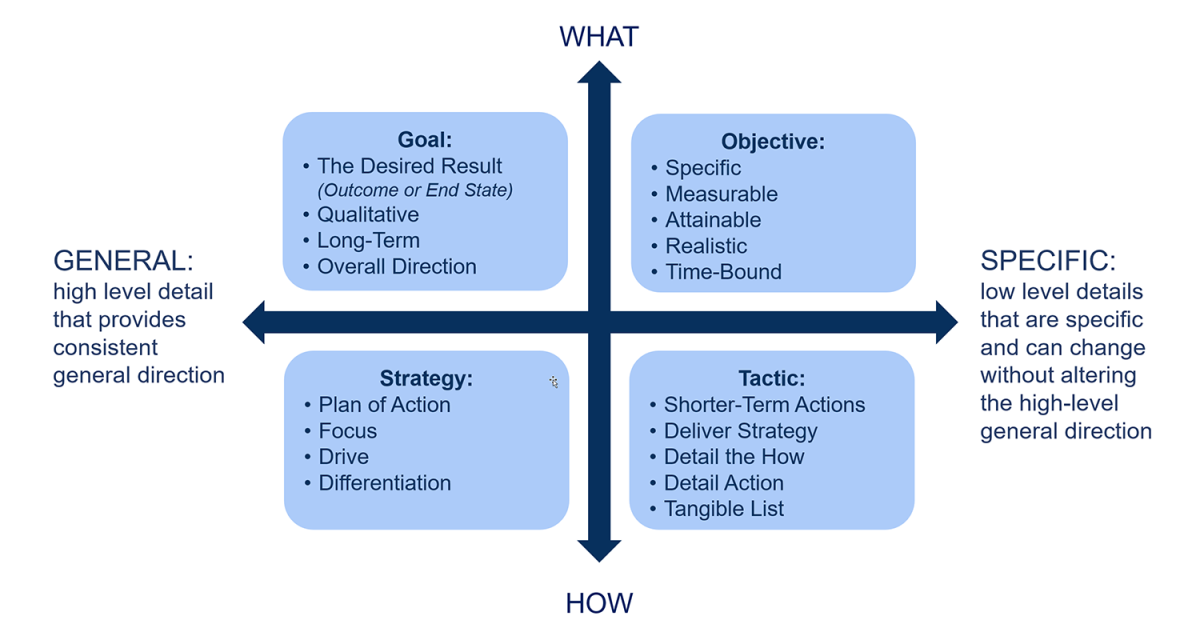
This level of clarity ensures that all teams are aligned and that every action contributes meaningfully to overall business objectives.
- Visual Workflow Management
- Blastoff® excels in providing Visual Workflow Management tools, which feature:
- Customizable Visuals: Clear representations of complex, multi-phase projects.
- Progress Tracking: Easily monitor project status and resource allocation.
- Cross-Functional Management: Coordinate tasks effectively across different teams.
Whether managing a product launch or coordinating with research teams, Blastoff® ensures that every project stage is visible and organized, reducing bottlenecks and enhancing communication.
- Online Reputation Management POV
- For teams focused on Online Reputation Management, Blastoff® offers specialized features that cater to their unique needs:
- Reputation Score Tracking: Monitor your brand’s reputation with real-time updates on overall performance across digital platforms.
- Real-Time Monitoring: Keep tabs on brand mentions, reviews, and social media conversations to quickly respond to potential issues.
- Crisis Management Support: Streamline response strategies with customizable workflows designed to handle negative press or customer feedback efficiently.
These features allow teams to manage not only their brand’s reputation but also swiftly address and mitigate potential risks—crucial for maintaining a positive public image and fostering customer trust.
- AI Integration
- Blastoff® leverages AI to analyze vast amounts of data and develop a recommended strategic roadmap. This roadmap helps teams proactively shape their reputation management strategy, offering insights into emerging trends, potential risks, and the best course of action for maintaining a positive brand image.
Get Started with Blastoff®
If you’re ready to experience the benefits of strategic task management, consider these options:
To get a head start on your product launch, program management and strategic planning needs schedule a free complimentary discovery call with Rajiv Jadhav, CEO of Rsquare Media. Click here!
In summary, Blastoff® combines a powerful framework with advanced visual management and industry-specific features, making it an indispensable tool for teams tackling complex projects in regulated environments.
Asana

Asana is celebrated for its user-friendly interface and powerful task management capabilities. Key features include:
- Task Assignments: Easily assign tasks and set deadlines.
- Progress Monitoring: Track project status with visual timelines.
Blastoff and Asana are both powerful project management platforms, but Blastoff stands out for teams that need a more structured, strategic approach. Asana is versatile and easy to use, offering flexible project views such as lists, kanban boards, and calendars, making it an excellent choice for general task management across various industries. However, Asana’s emphasis on task organization may fall short for teams that require advanced goal-setting and alignment with broader objectives. Blastoff, with its GOSTT framework (Goals, Objectives, Strategies, Tactics, and Tasks), is designed to ensure every task supports larger business goals, making it ideal for more complex, strategy-driven projects. Additionally, Blastoff offers premium features to all users, while Asana reserves certain advanced tools for higher-tier plans.
KEY BENEFITS OF Blastoff
- Blastoff GOSTT framework ensures strategic alignment with business goals.
- Blastoff is built with advanced features for structured project execution including AI Integration.
- Blastoff premium tools, like Gantt charts, are available to all users, unlike Asana’s tiered pricing.
- Asana excels in flexibility for general task management but lacks Blastoff structured approach for more complex projects.
To get a head start on your product launch, program management and strategic planning needs schedule a free complimentary discovery call with Rajiv Jadhav, CEO of Rsquare Media. Click here!
Trello

Trello employs a card-based system that is ideal for teams favoring visual task management. Highlights include:
- Simplicity and Flexibility: Customize boards for easy task tracking.
- Visual Management: A straightforward approach to organizing workflows.
To get a head start on your product launch, program management and strategic planning needs schedule a free complimentary discovery call with Rajiv Jadhav, CEO of Rsquare Media. Click here!
Monday.com

Monday.com offers extensive customization and automation, making it versatile for a range of workflows. Notable features include:
- Visual Timelines and Gantt Charts: Create tailored project management systems.
- Automation Options: Streamline repetitive tasks.
Blastoff and Monday.com offer different strengths, with Blastoff excelling in structured project management for teams needing alignment with broader business goals, while Monday.com shines in its versatile customization across a wide range of industries. Monday.com is highly adaptable, offering customizable workflows, multiple project views (kanban, Gantt, timelines), and a wide variety of third-party integrations, making it a flexible tool for diverse teams. However, its general-purpose design may not meet the needs of teams requiring a more strategic, goal-oriented approach. Blastoff stands out with its GOSTT framework (Goals, Objectives, Strategies, Tactics, and Tasks), ensuring that tasks align with larger business objectives. This structured approach makes Blastoff ideal for managing complex, strategy-driven projects. Unlike Monday.com’s tiered pricing model, Blastoff provides feature equity, offering all users access to premium tools like Gantt charts and real-time collaboration.
KEY BENEFITS OF BLASTOFF
- Blastoff GOSTT framework aligns tasks with broader business objectives.
- Blastoff offers advanced tools without pricing restrictions.
- Monday.com is highly customizable, with various project views and strong integrations, making it versatile across industries.
- Monday.com’s general approach may lack the structured depth needed for complex projects, while Blastoff focuses on precision and strategic alignment.
To get a head start on your product launch, program management and strategic planning needs schedule a free complimentary discovery call with Rajiv Jadhav, CEO of Rsquare Media. Click here!
Strategies for Effective Project Management
Successful project management goes beyond merely ticking tasks off a checklist; it relies on key strategies that drive collaboration, adaptability, and risk mitigation. While popular tools like Asana and Trello provide solid foundations for communication and task management, Blastoff® takes these capabilities a step further, especially for teams managing complex, high-stakes projects in regulated industries.
Conclusion
Choosing the right project management tool is essential for ensuring efficiency, collaboration, and long-term success, especially when managing complex projects in regulated industries. While popular platforms like Asana, Trello, and Monday.com offer valuable features for general project management, industry-specific needs demand more specialized solutions.
Blastoff® emerges as the ultimate choice for teams operating in highly regulated environments. Here’s why:
- GOSTT Framework: Blastoff® unique ability to map tasks to organizational goals ensures that every action is aligned with broader objectives.
- AI Integration: Blastoff® leverages AI to analyze vast amounts of data and develop a recommended strategic roadmap.
- Real-Time Collaboration Features: Facilitates seamless communication among cross-functional teams, keeping everyone informed and engaged.
For teams that require more than basic project tracking, Blastoff® provides advanced, tailored solutions that not only meet the demands of complex projects but also adapt to the specific challenges faced in these industries.
Whether your team is small or large, simple or complex, Blastoff® offers a scalable solution. This makes it the go-to platform for teams seeking precision, accountability, and flexibility in their project management.
Are you ready to elevate your project management capabilities?
Blastoff® is designed to tackle the unique challenges of highly regulated industries. By leveraging our tailored features and innovative tools, you can:
- Optimize Workflows: Streamline processes to improve efficiency.
- Enhance Collaboration: Foster teamwork across departments.
Don’t miss the opportunity to experience the transformative power of Blastoff® for your team. We invite you to explore how our platform can streamline your project management processes and drive success in your organization.
To get a head start on your product launch, program management and strategic planning needs schedule a free complimentary discovery call with Rajiv Jadhav, CEO of Rsquare Media. Click here!
